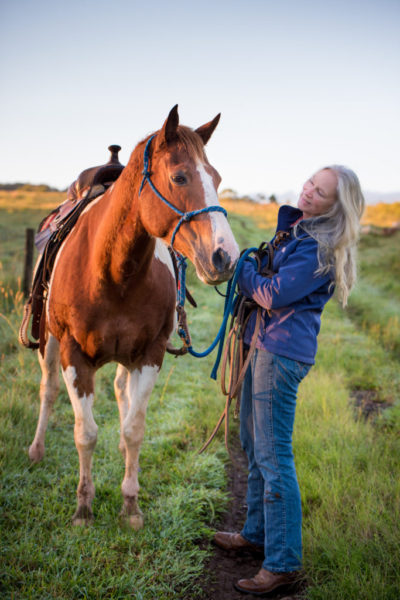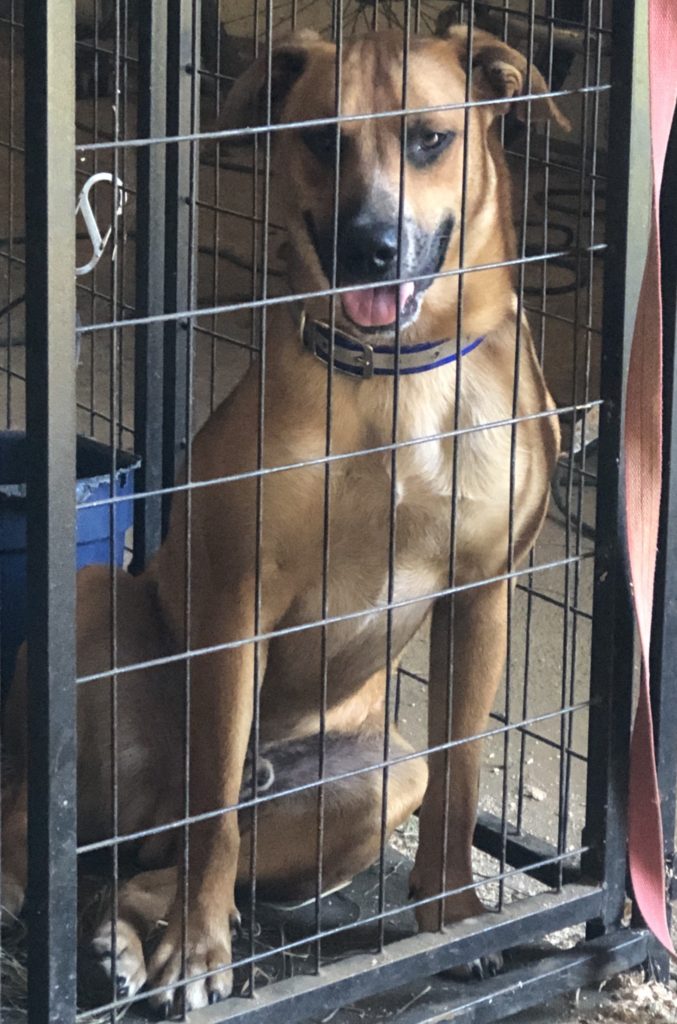It’s the people! There have been many changes in the 50 years during which I’ve lived here or had close family living here, and some of the old community spirit has definitely been diluted. There are many small groups, centered on schools, sports clubs, churches and the like. But there is also still a more community-wide spirit, and it is one of the reasons why I love living in Waimea.
Banding together to find a lost dog’s owners.
For instance, my house guests found this dog late in the day on Christmas Eve. By the time I got up to the gate where he had been lying, reportedly unable to move, my neighbors had leashed him and he was standing quietly by them. He had no collar, and they had already checked around to see if a notice of missing dog or something similar had been left in the area.
They were on their way out, so I took him and put him in a kennel in my barn. The Humane Society and all vet clinics were closed, so I searched Craigslist lost and found to see if anyone was looking for him.
Fellow animal lovers pitch in to help, on Christmas Day!
I also called my friend and a fellow Realtor, Paula Beamer, who I knew had a chip scanner. She agreed to come down on Christmas Day and scan the pup for a chip. No chip.
My neighbors posted notices on facebook and craigslist. That was all we could do until the day after Christmas, except that I emailed a report of having found him, with a photo, to our local Humane Society shelter.http://hihs.org/
Day three, still no sign of the owner.
On the day after Christmas, I checked in with the shelter by phone, to make sure they’d received my email. They had not received any reports of a lost dog that matched the photo and description I provided.
My neighbor let me know that she had received one response to her facebook post, and sent along the picture of the missing dog. We agreed that it was a long shot, but she encouraged the owner of the missing dog to contact me. Meanwhile, Paula posted her own photo and description on a different facebook page, and we kept hoping the owner would call.
The humane society went above and beyond, and found the owner!
I finally got a chance to take the dog to the Humane Society shelter on Friday, just in case their scanner detected a chip that Paula’s scanner had missed. No luck, but the staff took more pictures and let me know what the procedure was for claiming the dog if the owner could not be found. I could not have kept him, but I would have done everything possible to find him an excellent home.
I stopped at the feed store on my way home, and the folks there took more pictures to post to their instagram accounts and send to friends who might recognize the dog.
Late in the afternoon on I got a call from the shelter’s animal control officer. She had gone back through old reports and found one for a dog reported missing 2 weeks ago and 20 miles away! She had contacted the owner, who gave her permission to give me the owner’s contact information. I called, and, finally, bingo!
Ronson is home with his family.
Ronson has been reunited with his loving family, thanks to the efforts of my neighbors, Paula, the folks at the feed store and the staff at the Humane Society. It was all very informal-I was never required to surrender the dog or fill out any forms-and very cooperative. My neighbors even offered to help me pay for the food for the dog!
So that’s why I love living in Waimea. People here see a problem and pitch in to help solve it. Your religion, your politics, the color of your skin, your wealth or your income-none of that matters. All that matters is that you are humble, diligent and honorable. If you are those things, you are treated as a member of this very special community!




